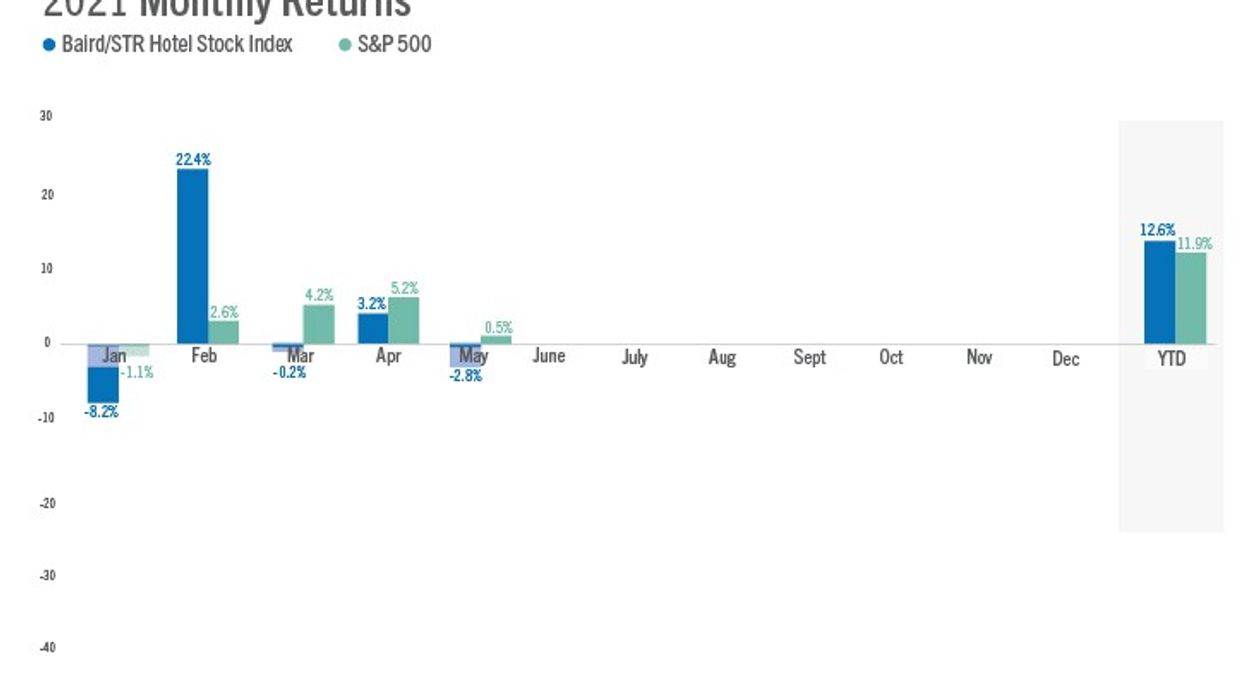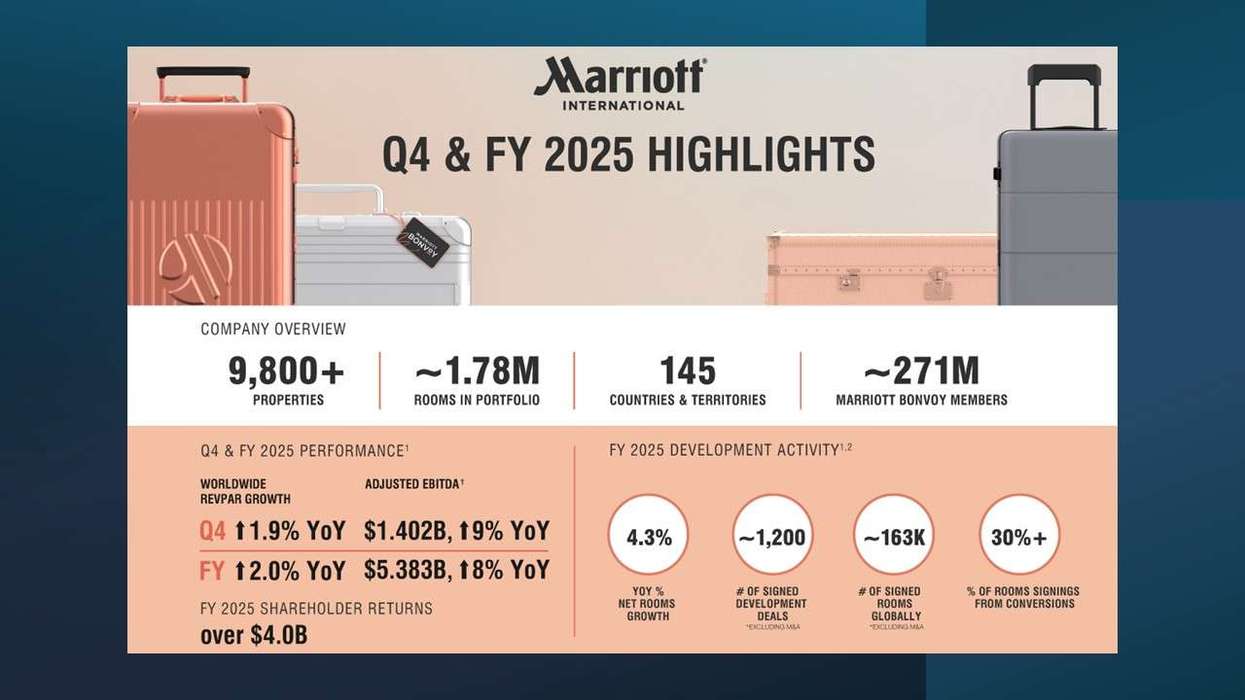THE BAIRD/STR Hotel Stock Index dropped some in May, down 2.8 percent, according to STR. Investors appear to be waiting to see if an increase in leisure travel will continue through the summer.
The index was up 12.6 percent for the year to date, according to STR. For May, the Baird/STR Index fell behind the S&P 500, which rose 0.5 percent, and the MSCI US REIT Index, up 0.8 percent. The hotel brand sub-index decreased 2.2 percent from April, when the overall index rose 3.2 percent. The Hotel REIT sub-index dropped 4.5 percent.
“Hotel stocks declined in May and underperformed their respective benchmarks for the third consecutive month,” said Michael Bellisario, senior hotel research analyst and director at Baird. “The broader reopening trade continues to lose momentum despite hotel fundamentals that continue to improve on a sequential basis, which is being driven by strong leisure demand. The return of the business traveler later this year is our key area of focus over the intermediate term.”
How U.S. hotels continue to perform over the coming weeks of summer could encourage more optimism among investors, said Amanda Hite, STR president.
“Leisure demand continues to drive improvement in a lot of markets, and the Saturday before Memorial Day produced the country’s highest occupancy level, 83 percent, since the fourth quarter of 2019. With more than 2 trillion dollars in accumulated savings, many have the means and the banked vacation time to travel and pay for premium experiences in the coming months,” Hite said. “If 2020 is any guide, we expect robust demand for destinations that offer access to beaches, parks and other outdoor settings. At the same time, there is an understanding that full recovery remains far off until a prominent return of business travel, groups and international arrivals. Midweek occupancies continue to hover around 50 percent, pointing to a slow recovery in the business segment that hinders growth in the major metros and at the top end of the market. April was the first month in a year with more than 2 million group rooms sold. Those rooms are more likely skewed toward social events with large corporate gatherings still on the back burner.”
Editor's note: This version of this story includes an updated and corrected headline to say that the Baird/STR Hotel Stock Index fell in May.






